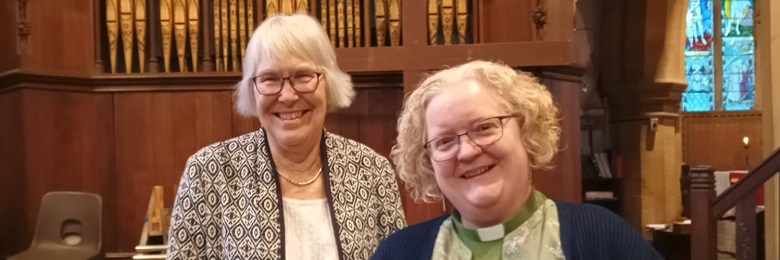
Every lay person has their own unique ministry in their homes, work places, churches and communities. Some of these ministries are visible to all, others are hidden, but each is vital for the Kingdom and treasured by God. In the diocese we aim for the Church to value equally all these ministries. However, some ministries need recognised lay ministry status in order for others to recognise them.
Recognised lay ministries are those which benefit from ministerial training provided by the diocese and diocesan recognition. These ministries are not better than others, but are ministries exercised in the name of the Church and can be assisted by the Church’s authorisation. For instance, we hope that all people will care for their neighbours and colleagues. However, some people undertake a more specific pastoral role in the name of their local church. They will undertake training through the Exploring Pastoral Care Course and then, with the support of their church, be recognised as Lay Pastoral Assistants.
Just because your ministry doesn’t have diocesan recognition doesn’t make it second class to the ministries listed here. It's just different and equally valuable.
Recognised Lay Ministries
At the moment the diocese recognises the following lay ministries:
- Chaplains – being representatives of the Church, caring and sharing in workplaces and community organisations. These people undertake the Exploring Chaplaincy Course.
- Evangelists – sharing Jesus with those who do not know God in their area as representatives of the Church.
- Lay Pastoral Assistants – carrying out visiting and pastoral care on behalf of the Church. These people undertake the Exploring Pastoral Care Course
- Lay Worship Assistants – helping to lead services and worship. These people undertake the Exploring Worship Course.
- Pioneers – helping give birth to new Christian communities where they do not yet exist. These people undertake the CMS Certificate in Pioneer Ministry.
- Readers – enabling mission, teaching the faith and being leaders in church and community. These people undertake substantial theological and ministerial formation through the Reader Course.